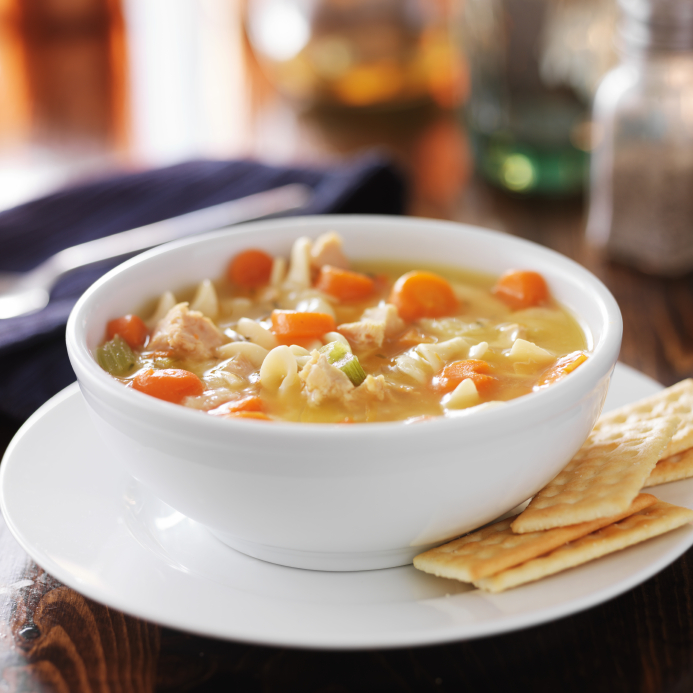It’s cold and flu season, and when many of us are feeling under the weather, we’ll will reach for our favorite elixir. It won’t be found among the analgesics or decongestants, and you won’t need a prescription.
In fact, the formula couldn’t be easier:
- chicken
- soup
The only mystery to chicken soup is why it’s so good when you’re feeling bad.
St. Elizabeth Healthcare dietitians Karah Stanley and Becky Jilek said it’s called comfort food for a reason.
“It’s easily digested, and it replenishes fluids if you’ve been really sick,” Stanley said.
Chicken soup also can replenish sodium, but be careful of how much you’re taking in, Stanley cautioned. Canned soups can be very high in sodium; a half-cup serving of a leading national brand packs a whopping 940 mg of sodium, two-fifths of your recommended daily intake for a 2,000-calorie diet.
If you make your own chicken soup and freeze some for use on sick days, you can cut down on the unhealthy aspect of your quest to get healthy: carefully trimming the fat from the chicken; using whole wheat or gluten-free noodles; loading it up with vegetables.
“If you’re making your own, you can model it to whatever diet you’re following,” Stanley said. “And you can add flavor with garlic, onion, parsley or bay leaves, things like that. You can really up the flavor while still cutting back on sodium.”
So our ailing selves crave chicken soup because it comforts us and can help re-hydrate us. Anything else?
There’s evidence to suggest that a natural amino acid called cysteine in chicken soup can help bolster your immune system, as well as give you some relief by helping thin mucus that your body tries to expel by coughing,
Here, the addition of garlic or peppers to give the broth flavor may also help give you some relief from your cough. Some say the spicy additions also can help loosen mucus and clear your sinuses.
There’s still another way chicken soup helps you feel better during cold and flu season.
Remember the old wives’ tale about feeding a cold and starving a fever? It’s not true. Both need to be fed.
Consuming fewer calories when you have the flu can impede your body’s ability to fight off the virus. It’s imperative to keep taking in calories and particularly fluids, as fevers can lead to dehydration.

